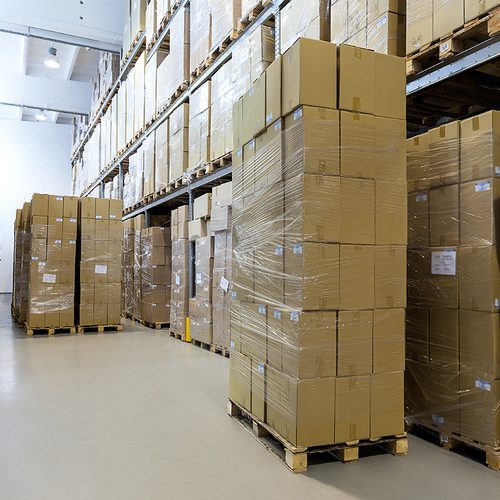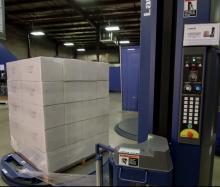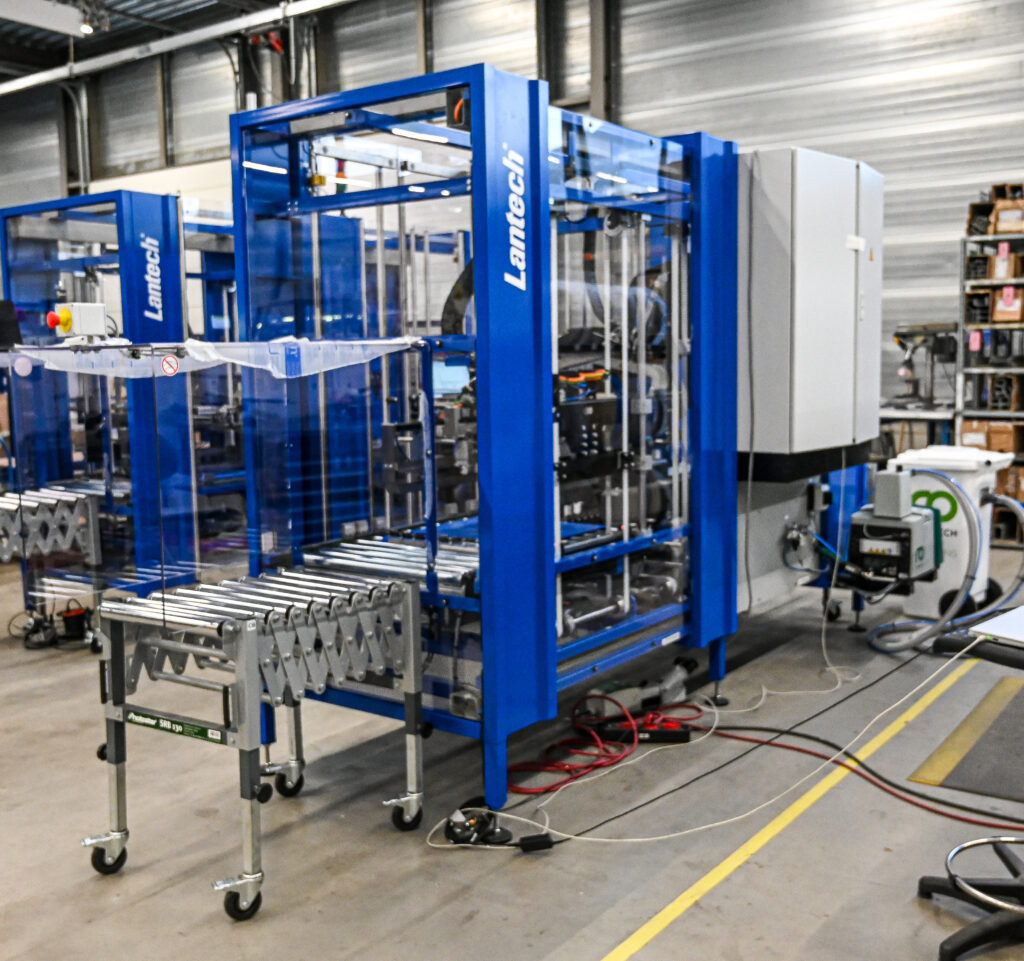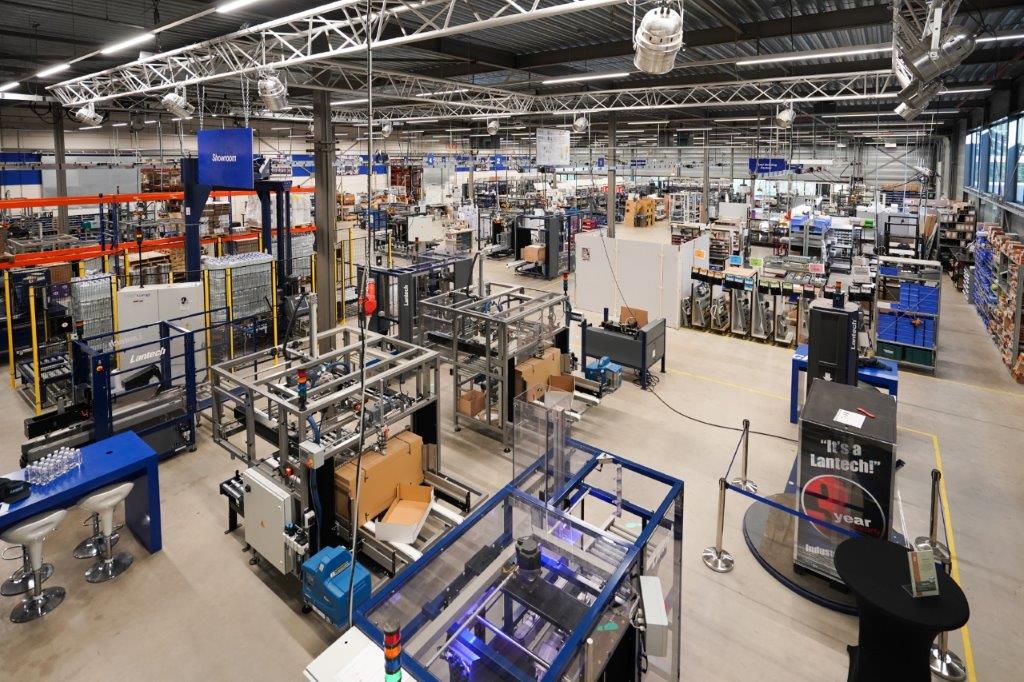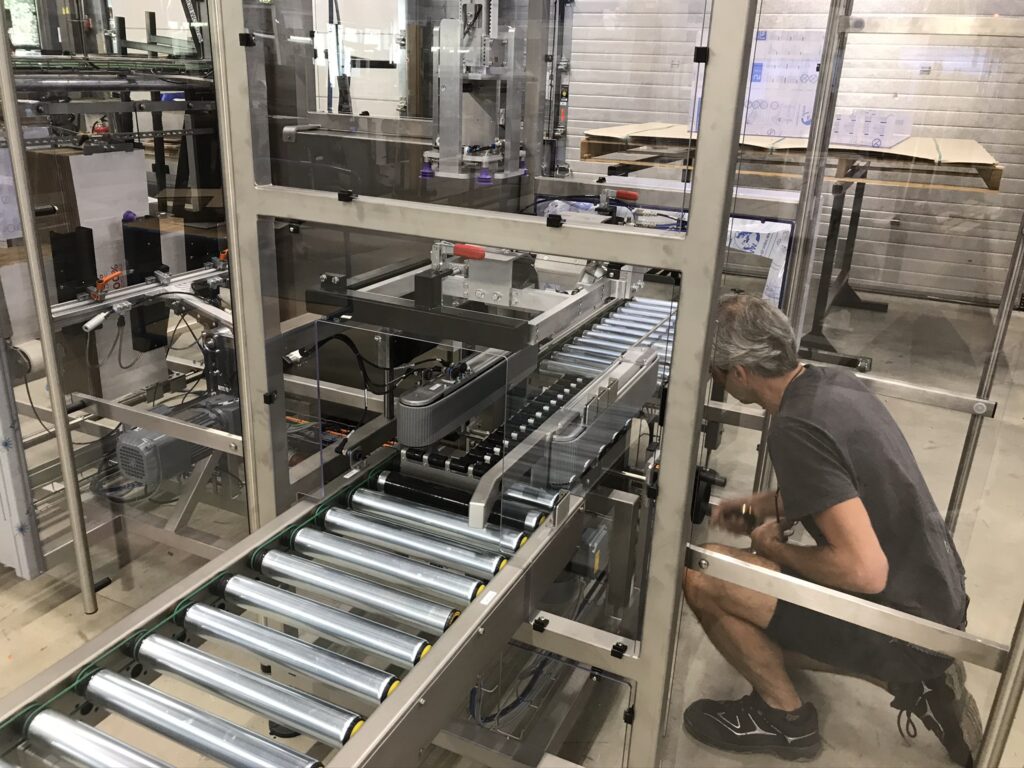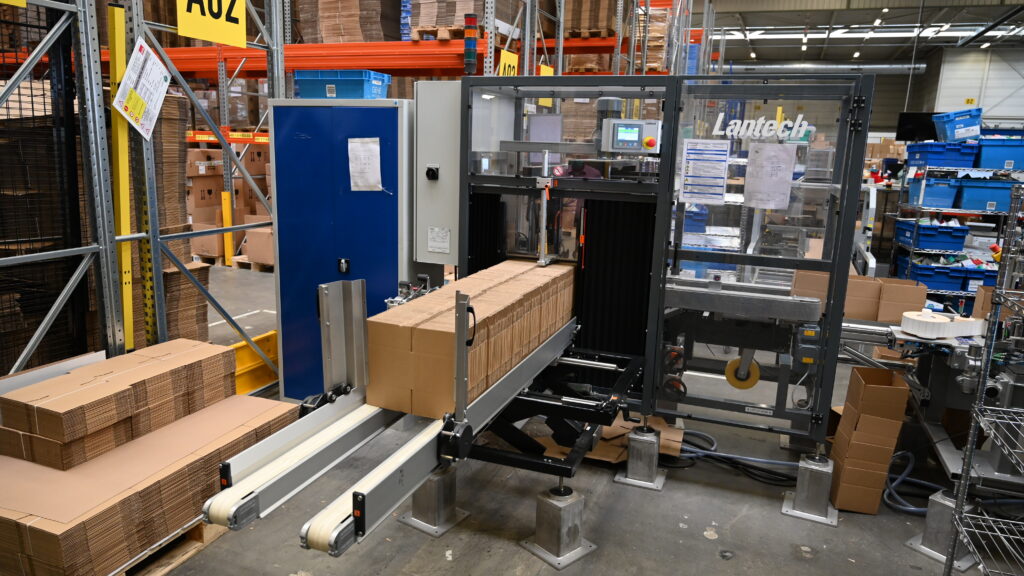When you’re buying a stretch wrapper for your facility, there are a few items to keep in mind when deciding which features and options you need.
1. Load Stability
Turntable stretch wrappers are the most popular semi-automatic stretch wrappers and handle the majority of load types. These turntable stretch wrappers may not be the best option for extremely light, extremely heavy or unstable/order picked loads. If the loads are too light, the rotation and pull from the film could cause the loads to fall apart or topple. In those cases, a stretch wrapper with a wrap arm is a better option, because the pallet remains on the floor, not a turntable. This way, the load will remain stationary, while the wrap arm rotates around it.
Furthermore, floor loading is ideal for too-heavy or order picked loads. They can be delivered right to the designated spot, and can be wrapped without too much extra movement or lifting. There is no need to lift the load onto the turntable with a forklift, or try to take it up a ramp.
2. Ramp
Stretch wrappers are typically made to accept loads transported by forklifts, since the pallets are lifted onto the turntable. But if you’re going to use a pallet jack to move the pallet loads around, you’ll need a ramp to wheel the loads onto the turntable.
3. Mast Height
The standard wrap height on a semi-automatic stretch wrapper is 80-in. tall (6 ft., 8 in.). But we recognize that some load heights will vary depending on what you’re shipping. If your loads will ever rise above the 80-in. height, you’ll need an extended mast.
4. Turntable Size
Our standard turntables on semi-automatic stretch wrappers are 65 in. in diameter. They can hold the most commonly used (40-by-48 in.) pallets inside the turntable. However, if you ever use larger pallets, you’ll need to buy a larger turntable. Pallets that overhang turntables can create a hazardous environment for operators. The last thing you want is for a worker to get whacked in the ankle because he stepped a little too close to the turntable with a too large pallet on it.
5. Integrated Scale
Some people are required to weigh their loads before shipping. For one thing, weighing may improve your quality control process. If you know a pallet load of your product weighs a certain amount, you can ensure customers don’t receive incomplete orders. Check out our blog post, The Case of the Missing Pappy Van Winkle Bourbon, on how weighing as a final quality control method uncovered three cases, valued at $26,000, had been stolen from the center of the load.
For another thing, weighing loads helps LTL shippers avoid fines and penalties from trucking companies. They don’t always have the means or opportunity to weigh the loads they pick up; they rely on the shippers to tell them the weights. But if they’re off because you gave them an inaccurate number, you’ll be subjected to fines and penalties.
Buying a stretch wrapper is actually farily simple, but keep in mind these five items as you begin to make your final purchasing decisions. Learn more about stretch wrappers at lantech.com.
For more information, you can contact us on our website or call us at 502-815-9109.
Click here to read related blog: How to Solve the Biggest Problem With Loads Sliding Off the Pallets
This post was published on May 21, 2014 and updated on November 20, 2019.
May 21, 2014

